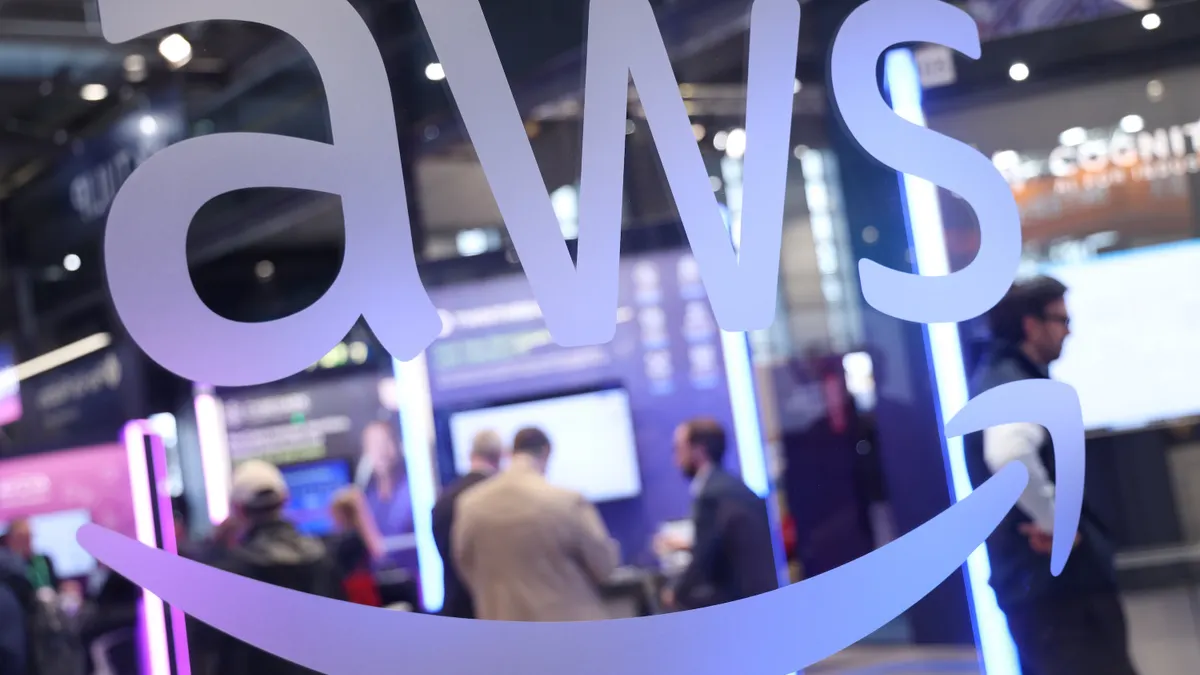When Howard Stahl, a computer science professor at Santa Monica College, attended a cloud computing summit hosted by Amazon Web Services (AWS) five years ago, he walked away inspired.
"I called up my department chair and said 'Nobody is doing this,'" he recalled of his proposal to create courses in cloud computing. "'This could be pretty good.'"
"Pretty good," it turns out, was an understatement. Stahl went on to collaborate with AWS to create a cloud computing certificate that has proven wildly popular. When Santa Monica began offering it, in 2017, classes filled on the first day of enrollment — 110 days before the start of the fall term.
Two years later, more than 2,000 students have enrolled in the program at Santa Monica and the five other Los Angeles area colleges that have rolled it out so far. The curriculum has been shared, for free, with hundreds of institutions in the U.S. and around the world.
Amazon isn't the only tech giant actively shaping the programs that will train its future employees and customers. Google, Facebook and Apple also are collaborating with colleges as more companies face a shortage of skilled workers who can navigate an ever-evolving tech landscape. In some cases, the companies are covering the costs of the programs for students; in most, they earn no revenue.
College officials say the partnerships help ensure their students graduate with the skills and knowledge employers want, as well as get priority for internships and jobs. Tech leaders say colleges — and two-year colleges, in particular — provide access to a diverse pool of candidates for jobs that don't require a bachelor's degree. They also have important connections to K-12 schools and four-year colleges.
"We live and die by builders and innovators, and if we can't find them, it's going to slow down the pace of innovation for us and for our customers and partners around the world," said Ken Eisner, director of worldwide education programs at AWS. Right now, he said, "there is a gap in workers who can fill these opportunities."
Keeping up with the tech giants
The success of Santa Monica's certificate program spawned a cloud computing specialization at Northern Virginia Community College (NOVA) and a cloud computing bachelor's at George Mason University, both of which were developed with AWS.
LinkedIn lists cloud computing as the most in-demand hard skill among companies today. Much of that demand is driven by AWS, whose sales grew 37% from June 2018 to June 2019.
But there are risks and limitations involved in working so closely with a single vendor, even if its technology is widely used. Market shares can shift, and a vendor-specific curriculum doesn't instruct students on how to work on other platforms.
Colleges that have worked with Amazon acknowledge this risk but say the concepts they teach — such as computational thinking, information management and data security — are critical for working in cloud computing and many other fields. They're open to collaborating with other vendors, too.
"Wherever they land, there's going to be some on-site training. I don't see it as a disadvantage," said Chad Knights, NOVA's provost of information and engineering technologies. "But the welcome mat is out for anyone who wants to come work with us."
A bigger challenge, college leaders say, is simply keeping up. In 2018 alone, AWS released close to 2,000 significant new services and features. Staying current requires hours of professional development, Santa Monica's Stahl said.
The cost of that training could limit how many colleges pursue partnerships with tech companies.
"We live and die by builders and innovators, and if we can't find them, it's going to slow down the pace of innovation for us and for our customers and partners around the world."

Ken Eisner
Director of worldwide education programs, AWS
In California, professional development is paid for by the state, which plans to invest roughly $3 million in a consortium of colleges and schools called the California Cloud Workforce. Colleges located in less generous states would need to find alternative funding.
It's too soon to know if students who complete Amazon's certificate and degree programs are landing jobs at the company or working elsewhere in cloud computing. The oldest program, at Santa Monica, has only 55 graduates so far.
But Michael Brown, 24, one of the first students to earn the certificate at Santa Monica, is confident his investment will pay off. He's already completed two internships with cloud-services company Mission and was recently hired on.
Brown, who worked at Starbucks and his parents' vitamin shop for three years after high school, sees cloud computing as a sure pathway into a high-paying career without a bachelor's degree. When he learned about the certificate two years ago, he said, "I knew I had to jump on it."
A next-level partnership
Partnerships between community colleges and big employers are nothing new. For years, colleges and businesses have collaborated to design programs that meet local workforce needs.
Historically, though, companies have left the curriculum to the colleges, specifying the skills they're seeking, then stepping aside.
AWS, which has an East Coast hub in northern Virginia, has been more hands-on, holding sessions with colleges to build classes around a cloud competency framework the company created. As its programs have proliferated, Amazon has played convener, uniting colleges from across the country to build cloud computing degrees.
"They took the (employer) partnership to the next level," Knights said, by helping to develop resources to support instruction.
Other tech companies have gone a step further by crafting curricula that colleges can customize. For instance, Google designed its own IT support certificate, and Facebook hired Pathstream, a company that partners with software firms to build skills-training programs, to support its digital marketing certificate.
The idea that a college would let a company create or co-create their curricula doesn't faze many at the nation's community colleges, where the focus is workforce development. It's a bit more controversial at four-year colleges because some faculty see such collaboration as a threat to academic freedom.
Skepticism seems to be softening, however, as four-year colleges search for better ways to prepare their graduates for a rapidly changing workforce.
Michelle Marks, vice president for academic innovation and new ventures at George Mason University, which is working with AWS, said her college "realized we need the insight industry can provide us."
"We owe it to our students to identify the skills they'll need and to think about creative ways to embed those skills in our programs," she said.
The companies, meanwhile, say they're not imposing their ideas on colleges. Facebook has asked Pathstream to help colleges customize its curriculum to fit their needs, a company spokeswoman said. Google built its program in modules and hired Jobs for the Future, a workforce-development organization, to help colleges adapt it.
"We defer to faculty in how they want to implement the curriculum," said Natalie Van Kleef Conley, senior program manager for Grow with Google, the tech company's training arm. Unlike the programs offered by Facebook and Amazon, Google's IT support certificate program does not specifically train students to work with the company's technology.
Eisner said AWS' goal is to combine the benefits of college instruction and industry-aligned standards.
"It's not industry dumping curricula on a school," he said. "It's industry-aligned curricula."
A potential threat
In July, Amazon announced it would spend $700 million to retrain its employees, sparking doubts about colleges' ability to keep pace with tech companies' workforce demands.
Amazon's decision to expand its postsecondary training and credential programs doesn't affect its arrangements with colleges — for now.
But some analysts see the move as the latest sign colleges are losing their grip on the market for continuing education. They warn that companies might decide to offer their products directly to the public, choosing competition with colleges over continued collaboration.
"It's not hard to imagine the service becoming deeply threatening to colleges," said Michael Horn, head of strategy for Entangled Group, an education venture firm.
Asked if Amazon's announcement was a signal to schools that the company's needs weren't being met externally, Eisner urged colleges "to act quickly, to collaborate on doing this work at scale."
"It's something we have to be concerned about," Eisner said, "but when we look at the work being done with educators, we see an exciting potential to flip the switch."





















